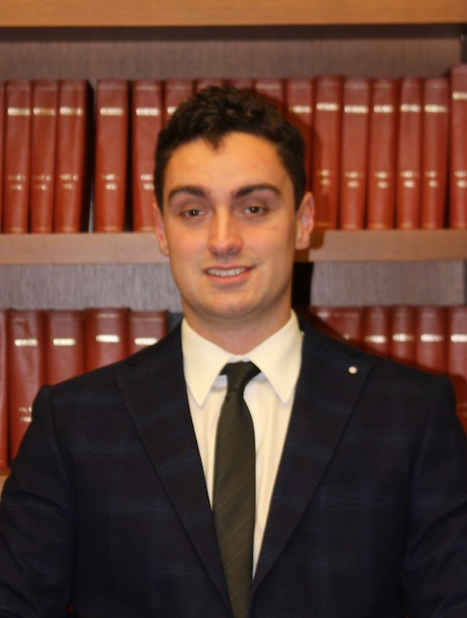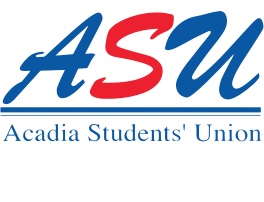The Students’ Representative Council (SRC) is a council composed of a body of students elected by their peers, who are tasked with running the Acadia Students’ Union (ASU). The SRC meets every Wednesday at 5:30 PM in the Beveridge Forum located off the Michener Lounge in the Students’ Union Building (SUB). Each meeting is open to the public and students are welcome to attend meetings to learn more about the decisions being made on their behalf.
This week’s meeting started as usual with a land acknowledgment and the acknowledgment of the ASU’s statement of autonomy. Missing from this meeting was the Arts Senator, VP Student Life, and the Sustainability Officer. After rolls were called, the agenda was passed, and the meeting began.
ELECTION UPDATE
Chairperson, Molly Anderson, explained that the By-Election received no student interest and therefore the Council has the option of opting not to run an election with no candidates for the sole sake of the referendum question. The other option, she explained, would be for the council to run the election again. She opened this up to the floor. Lydia Houck, VP Academic, shared her thoughts, explaining that they could run the election again with much more success if they changed their strategy. Blake Stevees, VP Events and Promotions quickly agreed. VP Finance and Operations, Brendan Keeler, also agreed, adding that he felt the council as a whole fell through with the promotion of this election and that in the future each member should make sure they talk to those around them about these opportunities. Following this discussion, Anderson concurred that a second by-election would be logistically possible if better organization happens prior.
Discussion: Diversity, Equity and Inclusion at Acadia
President Brendan MacNeil let the next topic regarding the presentation by Polly, the Diversity, Equity and Inclusion officer for the university that would be held the following week. On Polly’s behalf, he asked whether any member of the council had suggestions for topics to be covered. Houck spoke up to clarify what type of training they would receive (I.e. a bigger, open presentation or more specific training) and MacNeil answered that he thought it would be a bit of both, with some specific advice on how to operate responsibly and respectfully in certain situations. Anderson added that after reviewing the presentation that Polly gave the RA’s, named “Anti-Oppression 101”, she felt the presentation would be fairly general. MacNeil went on to stress the importance of bringing up topics to be discussed as there are “a lot of structural issues, systematic racism, and other things at Acadia that we should be addressing as leaders.”
To “get the ball rolling” MacNeil started by explaining that one of the topics they will be discussing will be diversity in the hiring process of the Union; this would extend from language used during the hiring process to intentional outreach to student from all populations, to creating an inclusive and supportive work environment. Mary, the Graduate Students’ Senator, expressed that when she is among her fellow graduate students, she does not so much feel the effects of racism; she reasons this is because many graduate students are also international students and therefore understand each other. However, she went on to say that when she is on campus, she definitely experiences racism. It presents itself in the more implicit forms, like people not wanting to talk to her or sit next to her in meal hall. Mary thinks this may be a result of a lack of education and that Wong International Center needs to do a better job educating people and allowing international students to express their diverse cultures and languages, as well as educating international students about culture in Canada to make their transition smoother. Jodi Chaffer, Pure and Applied Sciences Senator, added with frustration that he believes Acadia’s International Society has been promoting itself for a while now but that at events when students are given opportunities, like Mary mentioned, to explore each other’s cultures, the turnout is almost exclusively international students. He thinks the focus needs to be on creating curiosity in domestic students to learn about how diverse Canada is inside and especially outside of the Atlantic. Many members agreed that one of the biggest issues was the fact that events tended to be promoted distinctly as events for international students or events for Acadia students in general, and that this distinction created a divide in the student body that reproduces itself.
Council discussed possible solutions such as more inclusive advertising of such events and creating events that promoted the integration of international and domestic students. Moreover, Mary brought up the point that many domestic students see the Wong International Center as a place that is off-limits to them, even though events held there are advertised as open to all students. Members also agreed that the ASU becoming more involved with the Wong International Centre could be a significant help. To end this discussion, Bauffer suggested the ideas of working across clubs to promote inclusion and diversity, with examples like bringing Acadia International Society and Biology Society together to do a workshop about the importance of diversity in the sciences. At this point, Molly Anderson suggested this conversation be continued with Polly at the presentation as her input may prove to be helpful.
SRC and Student Engagement
Leading council into the next topic, Anderson expressed her concern regarding the lack of student engagement with the SRC. She said that it was “a really bad path to be heading down because . . . it can stop us from being able to move forward as an organization”. She went on to explain that as of right now, the Governance Committee does not have enough members to function. Along similar lines, the Review Board cannot either because it must be filled after the by-election, which couldn’t run because there were no candidates. Anderson worries in the past 12 months the SRC student engagement has declined so much that students don’t know who the SRC is or what they do. She continued that if this decline continues, the Union could be in a position in a few years times where no one runs for President or Members of the Executive and the resulting structure of the organization could jeopardize the legitimacy of student representation. Anderson suggested that rather than discussing this issue formally as a council, that they instead break off into smaller groups and discuss informally, as this could be more productive.
ANNOUNCEMENTS
To end the meeting, MacNeil shared that the Axe Student Bar and Lounge has reopened!





